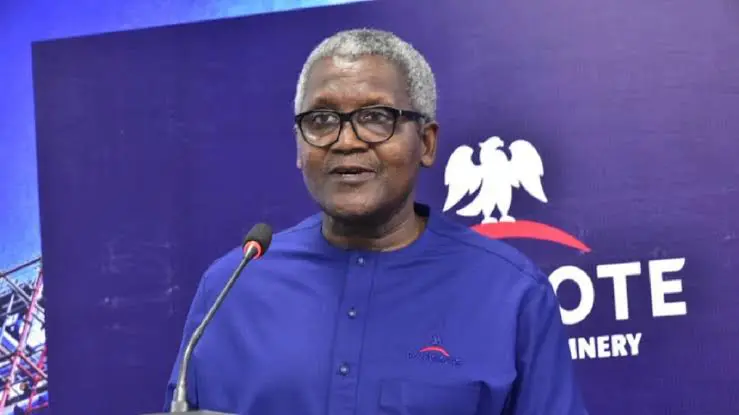The President of Dangote Group, Aliko Dangote has called for Nigeria to stop mortgaging its crude oil to ensure a stable supply of feedstock for local refineries.
Speaking at a summit organized by the Crude Oil Refinery Owners Association of Nigeria in Lagos, Dangote lamented that while countries like Norway are investing oil proceeds into future wealth funds, Nigeria and other African nations are spending their oil revenues as if they were from the future, according to The Punch.
“To ensure sufficient feedstock availability we will need to stop mortgaging crude. It is unfortunate that while countries like Norway are putting oil proceeds into a future fund through their national wealth funds, in Africa, we are spending oil proceeds from the future today,” he said.
Earlier reports indicated that the Nigerian National Petroleum Company Limited had pledged 272,500 barrels per day of crude oil through a series of crude-for-loan agreements totaling $8.86 billion.
The report noted that by pledging 272,500 barrels of crude oil daily, the NNPCL would utilize approximately 8.17 million barrels for various loan agreements each month.
This analysis was derived from a report by the Nigeria Extractive Industries Transparency Initiative and NNPC’s financial statements.
On Tuesday at the event, Dangote, represented by the Group Executive Director, Mansur Ahmed emphasized that the country must prioritize the implementation of domestic crude initiatives.
“We will also need to prioritise the implementation of the domestic crude supply obligation. We will need to expand crude production capacity to support demand from the refinery,” he submitted.
He added that the company built the 650,000 barrels per day capacity Dangote refinery In Lagos without any incentive from the government.
“We built the Dangote refinery without a single incentive from the government. However, to achieve the vision of turning Nigeria into a refining hub for the region, investors need to be incentivised,” he stated.
Dangote stated that an additional 1.8 million barrels of refining capacity is set to come online in the next three years across Kuwait, China, and Bahrain.
On the other hand, Dangote noted that Europe is tightening environmental standards, with Holland and Belgium banning exports of low-quality petroleum products from their hubs. He emphasized that these low-quality products were previously destined for Africa.
Citing a report, Dangote mentioned that several refineries across Europe and China, with a combined capacity of 3.6 million barrels per day, are expected to shut down over the next few years.









